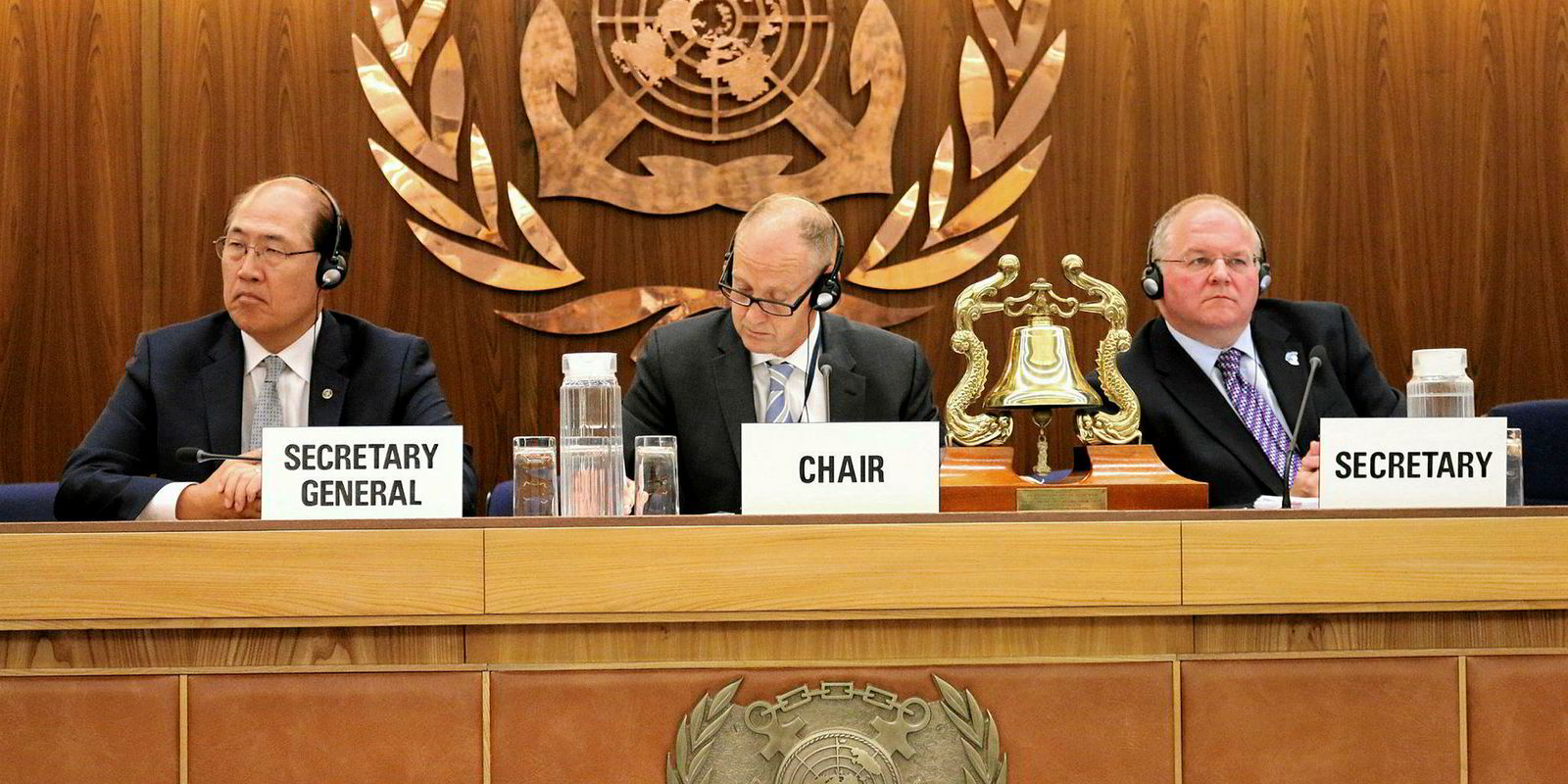Shipping regulators will be told to determine strict global emissions reduction targets as they meet in London next week, keen to show politicians that the industry is serious about tackling global warming.
The inter-sessional expert working group on the reduction of greenhouse gas emissions from ships met for the first time in London this week to guide the International Maritime Organization (IMO) Marine Environment Protection Committee (MEPC) towards progressing its carbon emissions reduction programme.
The IMO has said it wants shipping to contribute its fair share towards achieving the Paris Agreement goal of limiting the increase in global warming to 2°C above pre-industrial levels.
Next week’s MEPC meeting will be told by the inter-sessional group that the setting of targets for shipping is a critical first step in the process, as the IMO will first have to determine what level can be met through alternative fuels and technological advances.
While alternative fuels have huge potential, there is big question mark over how quickly shipping can make the change, with the IMO hoping to show significant advances in carbon reduction by 2050.
The IMO has promised to make its emissions reduction road map clear by next year. If it appears unlikely its goals can be met through technology and fuel, the IMO will have to fill the gap by developing market-based measures such as carbon offsetting or emissions trading.
The key decision the MEPC will have to make is whether the targets should be a cap on shipping emissions, which regions such as the European Union are said to favour. The alternative is setting emissions reduction targets, as has been suggested by the International Chamber of Shipping and its industry association partners.
The chamber recommends regulators set a target to “reduce average CO2 [carbon dioxide] emissions per tonne of cargo transported one kilometre by at least 50% by 2050, compared to 2008”.
The inter-sessional group is understood to favour the industry position of emission reduction targets but it is unclear how this will play out in the more politically charged decision-making process at the IMO.
China and India are said to be firmly against either emission reduction targets or capping.
Environmentalist lobby groups’ opinions could also carry weight. Their criticism of the industry’s recommendation is that there is no legal commitment to meet the goals, which are described simply by advocates as “aspirational”.
However, the industry group has defended its position, saying it is in line with the Paris Agreement, which also contains no legally binding agreement to meet the agreed targets.



